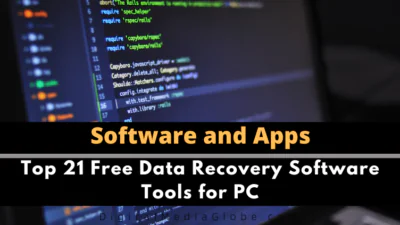FTC disclaimer: This post contains affiliate links and I will be compensated if you make a purchase after clicking on my link.
Financial Analytics is the art of deriving logical inferences from a given set of financial data.
Financial analytics predicts insights from loads of financial data in the form of Big Data, social media, stock market prediction, etc.
It uses statistical tools along with investment analysis, financial modelling and complex machine learning algorithms, etc to forecast the future investment value of a business thereby increasing the monetary performance of a company.
Also Read: Best Big Data Online Courses, Tutorial, Training and Certification
Since it is a multi-disciplinary field and not restricted to core finance, to start a career in financial analytics, you should be good enough in data analysis ,know coding (especially Python and R) or have a background in mathematics and statistics.
The type of financial analytics work in financial service domains include: credit scoring, claims processing, hedging, portfolio analysis, etc.
If you are already working in banking, credit card, securities, mutual funds and insurance sectors, a dive into financial analytics will be a rewarding career ahead.
5 Best Financial Analytics Course Online – Most Popular Choices
- Python for Finance: Investment Fundamentals and Data Analytics – Udemy
- Business and Financial Modelling Specialization – Coursera
- Financial Analytics in R – Data Camp
- FMVA Certification Program – Corporate Finance Institute
- Financial Analytics – Jigsaw Academy
1) Python for Finance: Investment Fundamentals and Data Analytics – Udemy
If you want a comprehensive course in financial analytics using Python, this course from Udemy is worth checking.
The course introduces Python programming to finance professionals and teaches them how to conduct real world financial analysis in Python.
In short, it helps you know how to code in Python and apply these skills when tackling financial calculations and portfolio optimization tasks.
The course comes with a 30 days money back guarantee, downloadable resources, full lifetime access and a certificate of completion.
Course ratings: 4.5+ from 5,866+ students
Key learning’s from the Course:
- Learn how to code in Python and how to use data analysis toolkit like Pandas
- Calculate risk and return of investment portfolios using regression analysis
- Learn how to price options using the black scholes formula
- Introduction to NumPy and learn to plot graphs in Matplotlib
- How to conduct in-depth investment analysis with extensive case studies
- Best practices when working with financial data
- Understand CAPM and how to perform Monte Carlo simulations
Course Reviews:

2) Business and Financial Modelling Specialization – Coursera
This is an excellent specialization from university of Pennsylvania to learn in-depth about business and financial modelling and how to make effective data driven financial decisions.
It is the best financial analytics course you can learn at Coursera and gives you a foundation knowledge into spreadsheet models, modeling techniques, investment analysis, company valuation, forecasting, etc.
There are a total of 5 courses in this specialization and if you want a financial analytics certificate at the end, then you have to complete all the 5 courses with assignment and projects.
To do that, you have to opt for a monthly subscription with Coursera. If you want to learn for free, then you can audit individual courses.
Course Specialization Duration: 2 months
Skills Gained: Financial Modelling, Microsoft Excel, Simulation and linear programming
Key learning’s from the Specialization:
- Learn the key ideas and process of quantitative models
- Use spreadsheet models to effectively map and predict financial data
- How to create quantitative models for making data-informed decisions
- Learn step by step processes of modelling common business and financial scenarios
- Prepare a power point presentation from your quantitative models as part of the capstone project
- You will be using data set designed by Wharton research data services
Course Details:
Course 1: Fundamentals of Quantitative Modelling
Course ratings: 4.6+ from 3,680+ students; Already Enrolled: 84,041
Course 2: Introduction to Spreadsheets and Models
Course ratings: 4.2+ from 2,017+ students; Already Enrolled: 60,869
Course 3: Modeling Risk and Realities
Course ratings: 4.6+ from 1,352+ students; Already Enrolled: 28,729
Course 4: Decision-Making and Scenarios
Course ratings: 4.6+ from 1,033+ students; Already Enrolled: 24,050
Course 5: Wharton Business and Financial Modeling Capstone
Course ratings: 4.6+ from 307+ students; Already Enrolled: 2,933
Course Reviews:

3) Financial Analytics in R – Data Camp
Data Camp is an online learning platform that has video lessons, fun coding challenge and projects exclusively on data science, statistics and machine learning.
This financial analytics training course teaches you how to explore cash statements, compute profitability metrics and apply finance decision rules with the help of statistical programming language R.
The first course is free to study but to learn further chapters you have to opt for a monthly subscription model.
Already enrolled: 2,909
Key learning’s from the Course:
- Learn the basic concepts of discounted cashflow valuations analysis with exercises and examples
- An overview of time-value of money, discounted multiple cashflows, effect of time on discounting, etc
- Understand different ways to summarize cashflow output: NPV, IRR and other computing metrics
- Advance topics in cashflow modeling, how to conduct and visualize sensitivity and scenario analysis
4) FMVA Certification Program – Corporate Finance Institute
The corporate finance institute has a financial analytics certification program called FMVA (certified financial modelling and valuation analyst).
As a finance professional wanting to enter into the analytic field, the certification program is a great way to get an additional training to get the desired job in investment banks, accounting firms, operating companies, etc.
However the course is not free to enrol and the certification program costs close to 500 dollars.
There are a total of 24 courses in the FMVA program and the average stipulated completion time is 6 months. The program is flexible and can be studied at your own pace.
Key learning’s from the Course:
- Learn industry best practices to layout, design and structure of financial models
- Learn how to build dynamically linked 3-statement financial model in excel from scratch
- How to create a multi-year forecast to project income statement, cash flow and balance sheet
- Value a company using comparable company analysis, precedent transactions and discounted cash flow DCF modeling
- Learn advanced form of financial analysis and derive insights from charts, graphs and powerpoint presentations.
- Learn how to use advanced data visualization techniques and understand the risk and opportunities from a new business investment strategy
5) Financial Analytics – Jigsaw Academy
Jigsaw academy is an online educational institution that offers extensive courses in analytics division.
The financial analytics course is self paced and takes around 3 months to complete the course.
Unlike MOOC course, there is not audit option to learn the course for free. You have to pay fixed fee to access the course material and its related case studies.
Since it is an analytical course, a background in statistics and coding is helpful to understand the course better.
Key learning’s from the Course:
- Overview of analytics for banking
- Understanding risky segments using the attributes like FICO score, depth to income, etc
- Explore risk acquisition data using case study
- Learn about cross sell and up sell grid strategies
- Understand the cross selling strategy with effect to attrition rate
- Case studies on mobile fraud detection, identify target segment for debt collection, how to create good and bad segments using cluster analysis, etc
Let us know in the comments sections what are your best picks to learn courses on financial analytics if you are planning to learn online?











